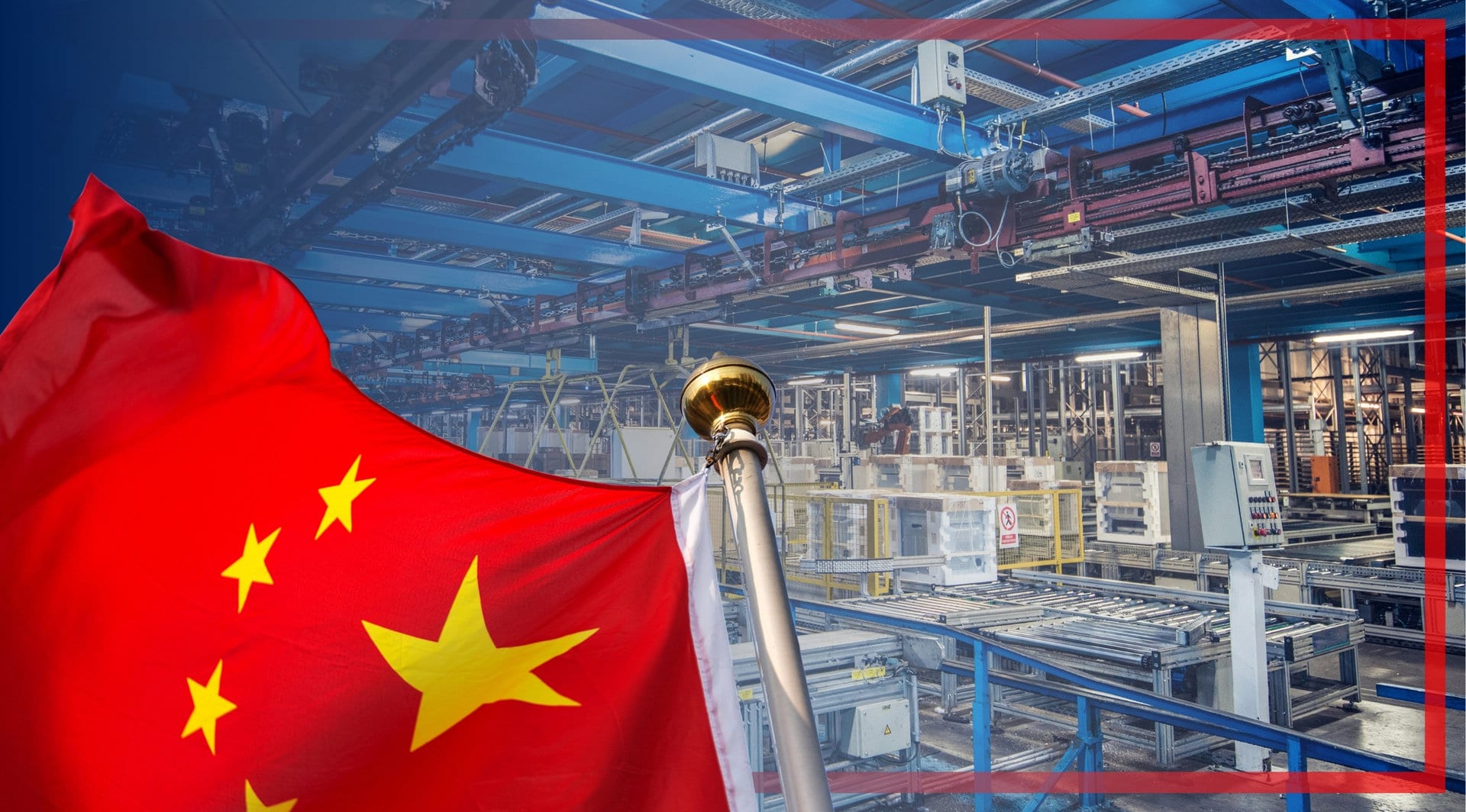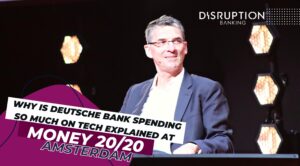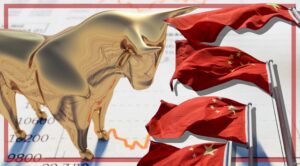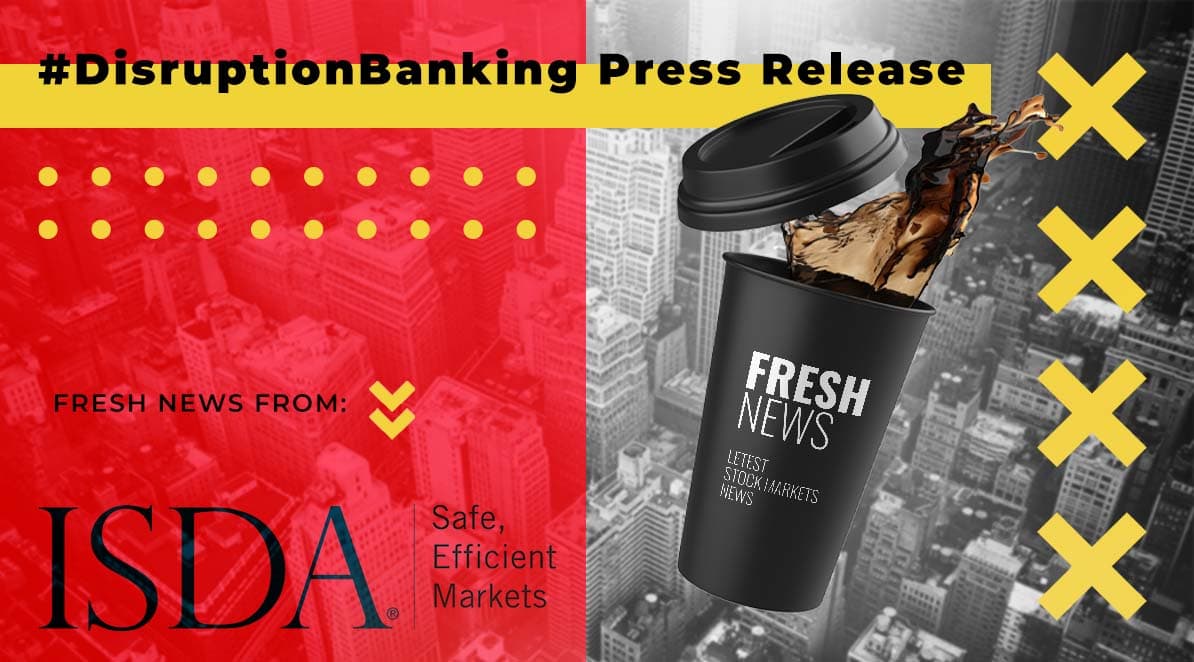How Asia’s largest financial centre, the Fragrant Harbour, went from the ‘Gateway of China’ to a burning hot pot fighting for a new future and why it will be a place to do business for decades to come.
This is part of DisruptionBanking’s series “Disruption in the Market”, where we cover and analyze unique market situations causing economic stress.
“In the midst of chaos, there is also opportunity” – Sun Tzu

The Gateway to China
Hong Kong began its journey as a focal point of commerce with the British Empire’s focus on making the port it’s footstep into China, with the trade in spices, silk and opium. On 1st of July 1997, the date of the Handover, 156 years of British Colonial rule over Hong Kong ended and the Hong Kong Special Administrative Region of the People’s Republic of China began under the ‘one country, two systems’ rule, due to finish in 2047. The Handover of Hong Kong is also often cited by scholars as the final definitive death knell of the British Empire, increasing the city’s importance in history. Under the implementation of the deal, the citizens of Hong Kong were to be given Universal Suffrage that is enshrined in the Hong Kong Basic Law, of which the city was in an uproar over the perceived break by the People’s Republic of China (PRoC).
Although the Chinese-British relationship was significantly strained by the two Opium Wars (the result of the second war in 1860 was that China’s share of global GDP contracted by half and caused it to lose its place as the world’s largest economy) the nations fought against each other around the port of Hong Kong, positive diplomacy was restored after the end of the Cold War. Since then, the relationship has gone from strength to strength as materialized by such initiatives as the China-UK AI Summit, which DisruptionBanking partnered, covered and paneled in London this year.
Just how important is Hong Kong to China economically? In 2018, 67% of the flow of inward Foreign Direct Investment into China comes through Hong Kong and the city is also the recipient of 58% of the flow of Outward Direct Investment from the Mainland. According to SWIFT, Hong Kong is also the largest offshore RMB clearing centre in 2018, sharing about 79% of the world’s RMB payments. China’s powerhouse has helped the city to be listed as the 3rd leading global financial centre, only after New York and London, according to the Global Financial Centre Index.
Hong Kong additionally forms a large part of the PRoC’s ‘Guangdong-Hong Kong-Macau Greater Bay Area’ (GBA) initiative, the infrastructure project to link 9 southern cities into a megalopolis to rival the Greater New York and San Francisco Bay Area regions. It appears to be a success in the making, in 2015, the World Bank reported that the GBA had overtaken Tokyo to become the largest urban area in the world in both size and population. The Hong Kong-Shenzhen relationship is especially singled out to be highly complementary with Hong Kong being the world’s most services-orientated economy (services accounting for 90% of GDP) and Shenzhen being a strong tech-manufacturing hub, labelled Asia’s Silicon Valley by Bloomberg.
Being the Gateway to China has resulted in Hong Kong, meaning ‘Fragrant Harbour’, claims the world’s highest land prices, and Kowloon town across the river, meaning ‘Nine Dragons’, has the highest density of people per square metre than anywhere else in the world, with many residents squeezed into coffin-like apartments. The economic powerhouse of Hong Kong is further evident as it was the starting place of the Hong Kong and Shanghai Banking Corporation in 1865, now HSBC Holdings plc, Europe’s largest bank by AUM (assets under management) and the world’s 7th largest.

Image Rights : Elaine Chiu
An Expanding Fintech Hub
The public sector involvement in FinTech is welcoming as there is a HK$5 billion Innovation and Technology Fund (ITF) which boosts the ecosystem, as well as giving clarity to Cryptocurrency-based businesses through regulation that seeks to transform Hong Kong into a major Crypto trading hub. Further evidence of a positive regulatory environment was made clear in May 2019, when the HMKA (Hong Kong Monetary Authority) granted four new virtual banking licences, bringing the total number to eight.
The GBA is ranked 5th in the Fintech Hub Index. In a 2017 Deloitte report, Hong Kong was ranked at the 6th spot for FinTech, leading the Bank of International Settlements to open an accelerator in the city to take advantage of the top talent and expertise. The FinTech Association of Hong Kong (FTAHK), a non-profit independent organization, boasts 178 members as of today, out of about 550 Fintechs based in Hong Kong, acccording to InvestHK. Amongst the innovators and disruptors are examples such as FinEx Asia, Bitspark, KYC-Chain and Neat.
FinEX Asia launched Asia’s first fintech asset management platform. Through this platform, professional and institutional investors can access a series of FinEX Asia funds that are carefully structured through advanced risk modelling capabilities, blockchain data security and real-time performance monitoring. Bitspark, founded in 2014 and focused primarily on the Asian and African regions, is a Cryptocurrency company that has recently launched the first stablecoin pegged to the Hong Kong dollar (HKD) and has built an end-to-end ecosystem to provide a better alternative to the legacy financial system for remittance users. KYC-Chain is a B2B managed workflow application built on distributed ledger technology (DLT) that enables organizations to better manage their KYC processes for both individuals and corporates. It is a white labelled end-to-end solution that streamlines the onboarding process for businesses’ customers, and greatly improve efficiency their compliance teams.
The Fintech StartUp, Neat, a digital banking alternative, which was granted a Money Lender’s Licence in Hong Kong this year had this to say to on the overall FinTech situation in Hong Kong and their market positioning;
“Our
position has always been to be the ally to entrepreneurs. Hong Kong is one of
the top 5 fastest growing startup hubs in the world – from 2017 to 2018, there
was an 18% increase in the number of startups here. But the banking landscape
isn’t moving nearly as fast. Only recently have some of the big banks been
taking a stab at building out products for the SME market, and the Hong Kong
Monetary Authority has just enabled virtual banks. However, opening a modern
business account for SMEs and startups is just step one.
“When a small business wants to expand globally, the banks aren’t paying
attention. Our mission in this market is very focused: it’s to give
entrepreneurs the tools they need at every step of their growth, from opening a
business account, to giving them access to global payments when they want to
expand their business worldwide. Neat is here to provide the same international
experience to young companies as well-established multinationals.”

Image Rights : Elaine Chiu
Not ‘Losing Control’
Two million people took to the streets of Hong Kong at the beginning of the widely reported on protests, one third of the place turning out to voice their displeasure. But Monday 26th August marked a turn for the worst, with the police firing shots and utilizing water cannons for the first time since the protest movement began. Protest leaders were also arrested on the 30th of August. Petrol bombs were being thrown in the streets daily by protestors and the police had ramped up their response with more violence. Despite widespread unrest in the city, Carrie Lam, the Chief Executive of Hong Kong, had infamously maintained she has “not lost control” of the situation.
Hong Kong has for almost four months been in a state of turmoil, with protestors barricading the legislative buildings that are a constant reminder to the coming encroachment of the People’s Republic of China, what many HK residents argue will be the death-knell of the city’s prosperity and attractiveness to foreign firms. The protests grew out of frustration that the Chinese government had proposed a new law that would see the ability of the mainland government able to extradite any citizen in Hong Kong that had committed a crime in the PRoC’s eyes. The crimes that one can be in the firing line for are numerous, around 50 crimes carry the death penalty. This is in stark contrast to the freedoms that Hong Kong has enjoyed since 1997, since the ‘hand-over’ from British colonial rule. The protestors have called for the proposed law to be taken out of parliament, and for the current head of the SAR (Special Administrative Region) to step down from her post. Although the bill was withdrawn on the 5th of September, the city continues its protest.
The Chinese State is loath to intervene militarily in the city’s issues, owing to the attractiveness and prosperity that the city promises. With the Great Firewall of China the danger that the protests could spill over into the mainland of China is something that ‘Big Brother’ is not particularly worried about. Nevertheless, a large contingent of military vehicles had built up in the city across the border in Shenzhen and a People’s Liberation Army troop rotation was undergone.
HSBC and Standard Chartered have vast amounts of business and value sitting in the city and are therefore in a position of difficulty not just owing HK but also to Britain’s exit from the EU and the Trade War that is not slowing anytime soon. In response to the difficulties, the banks have been taking different strategies to combat the headwinds, with HSBC going for a change in leadership and SC looking to focus on innovation via their eXellerators. The two heavyweights even voiced their opinions publicly when they took out full-page ads in various local papers asking for a peaceful end to the protests. A number of banks in Hong Kong had also seen themselves having to shutter retail operating branches owing to the violent clashes.
Ultimately, many cultural aspects about Hong Kong are iconic, such as their red taxis, the dazzling skyline and the largest sitting Buddha in the world, and it is clear that the citizens of Hong Kong are in a struggle for liberty and in keeping their unique heritage alive.

Image Rights : Elaine Chiu
Market Reaction to the Disruption
*** The sources for this section have requested to speak under anonymity owing to the uncertain and unique political situation. ***
A foreign business consultancy owner, having lived in Hong Kong for more than 25 years, had this to say on the subject and underlined the issues that were hurting business confidence;
“We are seeing political issues materialize into business, with Cathay Pacific for example having large parts of staff supporting the protests and walking out, and the CEO resigning (link). In terms of logistics the MTR (Hong Kong’s mass transit system) is shutdown, the Airports are shutdown, certain parts of town closed for shopping and Legco (Hong Kong’s legislative building) is closed and raided.”
Asked about whether he thought that China’s promise to open up it’s capital markets and ‘even out’ the playing field to attract FDI has been successful he refuted it by stating that “it’s more difficult and complicated to do business in China than it was a few years ago, with numerous changes having gone into effect such as the changes in repatriation, money flows and tax laws. Visas for expats to China are becoming increasingly more laborious to obtain.”
The consultant added that “Trump’s tariffs have shaken business confidence”. Queried on the future of the financial hub and whether there was a possibility that the protests could destroy the city’s standing, “no, but if tanks rolled down Central, it might be different”, referencing the Tiananmen Square Massacre of 1989.
The largest Bitcoin Fund operator in Hong Kong that DisruptionBanking has referenced in the past gave a concise thought of his engagement in the local economy, “now we are focusing our operations exclusively in the Japanese market.”
A local Financial Advisor and Stock Trader had an even more negative view on the current happenings in Fragrant Harbour, “everything is very stagnant, the logistics are disrupted, there have been 5 suicides so far, brutality is extreme on all sides, the triad gangs are now in total control and beating up people all over HK. At this point morale with the Hong Kong people is very low” and added that “Thailand and New Zealand have airplanes on the ground ready to ship out citizens and the UK and Canada are offering Hong Kongers passports. A lot of clients are thinking about moving personnel and capital into Singapore but retaining offices in Hong Kong.”
With the locations of Singapore and Japan now poised to take some of Hong Kong’s business, market participants’ thoughts can perhaps be best summarized with the Sun Tzu quote, “there is no instance of a nation benefiting from prolonged warfare.”

Image Rights : Elaine Chiu
Economic Fundamental Summary
From a financial and markets angle, the importance of the region is so crucial to China that it is highly doubtful that the PRoC should wish to step on its most-prized of golden gooses and repeat 1989. What is less certain is how the political crisis gripping the SAR (Special Administrative Region) will play out as 2047 gets closer. With 92% of residents in Hong Kong being ethnically Chinese, the city is less demographically fragmented than outsiders may think and is voicing concerns in concert. In other words, the collective population of Hong Kong has significant bargaining power.
A recent spike in unemployment and drop in business confidence due to the Hong Kong protest movement mean that for the short-term Hong Kong may not be the best place to do business as of today. And although the political situation appears, the economic fundamentals of the city remain strong. One has to be reminded that in the last decade the Gross Domestic Product has increased by 70%, from 214B USD to 363B USD in 2018, effectively almost doubling. Provided that the Corporate Tax Rate of 16% and the Personal Income Tax Rate of 15% remain, in the long run the city will continue to be an attractive place to do business. Additional solace can be found in the Government Debt to GDP ratio of Hong Kong, at just 38.5%, significantly lower than many other developed regions.
In regards to currency, the HKD peg to the USD had been speculated as being in a possible state of crashing, reminiscent of the Thai Baht in 1997, however this would not allow for economics, as the SAR is tied to China, giving access to China’s vast resources. As noted earlier, Hong Kong is the focal point of capital flow and RMB (Renminbi) trading, therefore the HKD peg is not in doubt and owing to the it’s macro positioning, the PRoC would rather depreciate its internally traded Yuan (which it has done), than jeopardize the Hong Kong Dollar’s stability, which has remained at 0.13 USD to 1 HKD for more than two decades (excluding short-term Black Swans). The HKMA has also brought a new ‘Resolution Facility’ to the table to calm fears. Norman Chan, Chief Executive of the HKMA had this to say on financial liquidity, “the framework outlines the facilities that are already in place, as well as the newly introduced Resolution Facility, in a systematic way so as to foster a better understanding of the different ways that liquidity may be made available to banks by the HKMA.”
With the Greater Bay Area’s GDP forecasted to be worth 4.6 Trillion USD in 2030 (up from 1.4Tn USD in 2015), and Hong Kong’s developed high-quality services-driven economy set to serve the needs of the surrounding region, long-term growth prospects in Hong Kong remain strong.
This may be part of the Lizard People conspiracy.















2 Responses